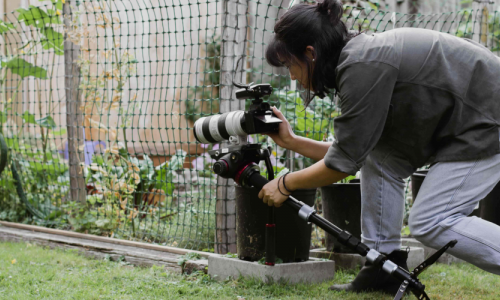
I love learning from other people’s experiences, and I know that it would be valuable to share what went wrong for my venture that lead to the current place we are in today. Use my mistakes to guide the your decisions in your entrepreneurial journey.
1. Too Many Chefs in the Kitchen
As I mentioned earlier, there were initially five co-founders. Now there are two. When we just started, everyone would ask us, “How many co-founders do you have?” to which I would answer, “Five,” and they would respond with, “Oh. That’s a lot.”
I didn’t understand why five was such a large number until I lived it. When you have five equal co-founders, that’s five personalities and opinions you need to get through before a decision can be made. In other words, five different opportunities for an idea to be rejected or paused. It was tough for us to move things along when everyone wants to be included in the decision-making process, and everyone’s opinion is equally valid. It is a lot easier and faster to have one or two other people to run your idea through instead of more.
2. Stay Away from Distractions
During the start-up process of your business, you’ll encounter many opportunities or events that may or may not help with your business development. Ask yourself if the opportunity, event, competition, or helps your business or if it’s a distraction. You'll know it's a distraction when you're not completing your necessary tasks because you’re too busy preparing for a random event, for example.
There were many moments that we would focus on unrelated projects and opportunities instead of our actual business. We wasted a lot of time this way.
3. Make Sure Your Team Is Aligned on the Same Vision and Goals
This is probably the most important piece of advice I’ll give you. Whether you decide to have two co-founders or five or more, the only way it’s going to work is if you and your team are completely aligned on a vision, values, and goals.
The reason we’ve been reduced from an original five co-founders to two co-founders is that we couldn’t agree on a direction or vision.
So, whether you want to start a fortune 500 company or a mom-and-pop shop, everyone should be on the same page. Your goals should be aligned.
4. Pivoting Is Not the End of the World
If you end up in a situation like mine, you’ll realize that perhaps the trajectory your company is going in may not be the one you were set out to take. Maybe your priorities have changed, maybe the world is changing, or maybe your team is changing. Regardless, it can be difficult to come to this conclusion as you’ve probably already spent hours, months, maybe even years in front of whiteboards, business models and a ton of time making it all make sense. In Studio Kleio’s case and my case, it was a blend of everything.
Firstly, COVID happened. Right as we had finally figured out a business model that was working, COVID had its own plans and made it impossible to implement.
Secondly, because of the old business model and team commitments, it would take a long time to figure out a way to accommodate the visions of all five co-founders. The more we tried to work it out, the more I realized that postponing my graduation to try and figure out a way to solve this problem was not beneficial.
In the end, it was healthier for some of my co-founders to part with Studio Kleio, as we could not agree on the direction we wanted to take it. Now being reduced to a team of two, we have decided to turn Studio Kleio into a branding and design studio.
What I want you to take from this is that everything is a fluid process and it’s okay to change directions if that is what makes sense for you and your team.
5. The Pandemic Could Be a Good Time to Start a Business
The last thing I’ll point out is that there is no better time to have a crack at a business idea. Jobs are hard to come by now and if all you have is time on your hands, there is no better opportunity to get something going. I promise you that even if you fail, you are so young that it won’t be in any way detrimental to your growth as an individual. You will learn so much in the process.
We are currently transitioning from our old business model to our new one, but if you are curious about Studio Kleio, check out our website.
If you are keen on starting your own business, I say you should go for it and take that risk! However, make sure you do your due diligence and take the appropriate steps to succeed. Starting a venture is very time-consuming and I wouldn’t recommend this lifestyle if it’s not something that you can commit to.
Secondly, remember that being in school allows you to work with a lot of different people and these relationships you foster in University may be the ones that you decide to start a venture with. While there are a lot of different people you’ll get to work with during your undergrad, be specific and intentional about who you choose to partner up with. Make sure your vision and your goals are aligned, and that you are all committed to what you are starting.
Finally, if you decide to take the leap and start your own venture while you’re in school, remember that there will be a lot of sacrifices you’ll have to make. It will be tough to balance both things at once and taking this decision may slow down the date you graduate. However, doing this while you’re in school provides you with an abundance of resources that you won’t necessarily have outside of school. Good luck!
Beyond the Blog
-
To learn more about Studio Kleio, click here to visit their website.
-
Vist David's entire series, What I Wish I knew Before Starting My Own Business.

















